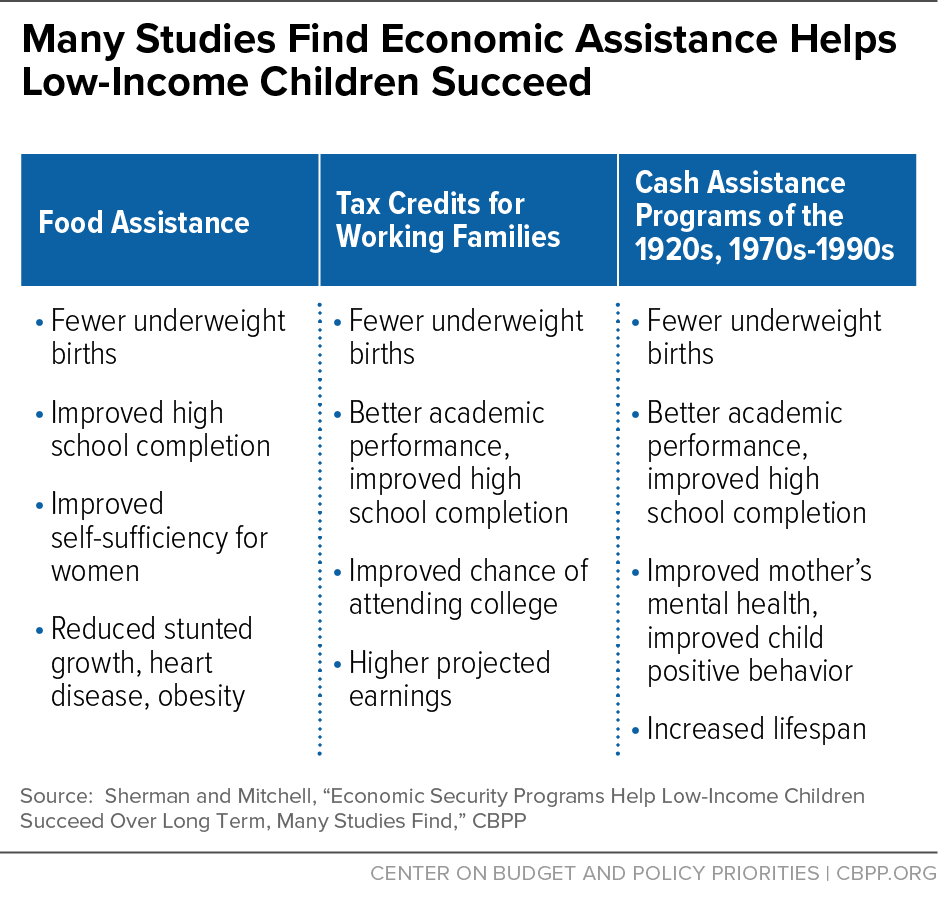BEYOND THE NUMBERS
Low family income can have lasting adverse effects on children, and government programs that bolster family income can help poor children catch up and succeed over the long term, growing evidence shows. As our new report details, these programs — such as food assistance, working-family tax credits, and housing subsidies — not only help families afford basic needs and reduce poverty today, but also improve children’s future health, productivity, and ability to contribute to their communities in ways that benefit society as a whole.
Specifically, studies have found that economic security programs can improve health outcomes at birth, raise middle-school reading and math scores, increase high school completion and college entry rates, lift lifetime incomes, increase positive behaviors, and even extend longevity (see the graphic below). The findings come from studies of SNAP (formerly food stamps), the Earned Income Tax Credit, anti-poverty and welfare-to-work pilot programs in the 1990s, and various other programs.
To cite just two examples:
- Researchers traced children whose families received Mothers Pensions, a program from 1911 to 1935 that served low-income mothers whose husbands were missing or incapacitated. The assisted children completed one-third more years of schooling than otherwise-similar children whose families were turned down. They also had nearly 14 percent higher incomes by early adulthood, were less likely to be underweight, and lived about a year longer, on average.
- A study tracked American Indian youth after a Cherokee tribal government in North Carolina opened a casino and disbursed profits averaging $4,000 a year to each adult tribal member. These stipends, continued for four years, fueled a rise of 1.1 years of education completed by age 21 among youth who were poor before the casino’s opening, and raised their likelihood of graduating from high school by nearly 40 percent.
Overall, the evidence supports the conclusion that economic security programs play a strong role in helping low-income children succeed. A systematic review of 34 high-quality studies reported that almost all of them found that higher family income had positive effects on children’s outcomes in areas such as education, behavior, and health. Of the 34 studies identified, only five found no evidence that income affected any of the outcomes examined, and methodological problems contributed to this result in at least four of those five, the review concluded.
Researchers are still exploring why a secure financial base matters for children’s development and lifelong opportunities. Because children’s individual needs vary, the reasons likely vary for different children and at different stages of childhood; income can have important effects on children’s early nutrition, exposure to stress, and learning environments, among other things. But the research clearly indicates that economic security programs help form a critical foundation for the well-being of children today and in the future.

